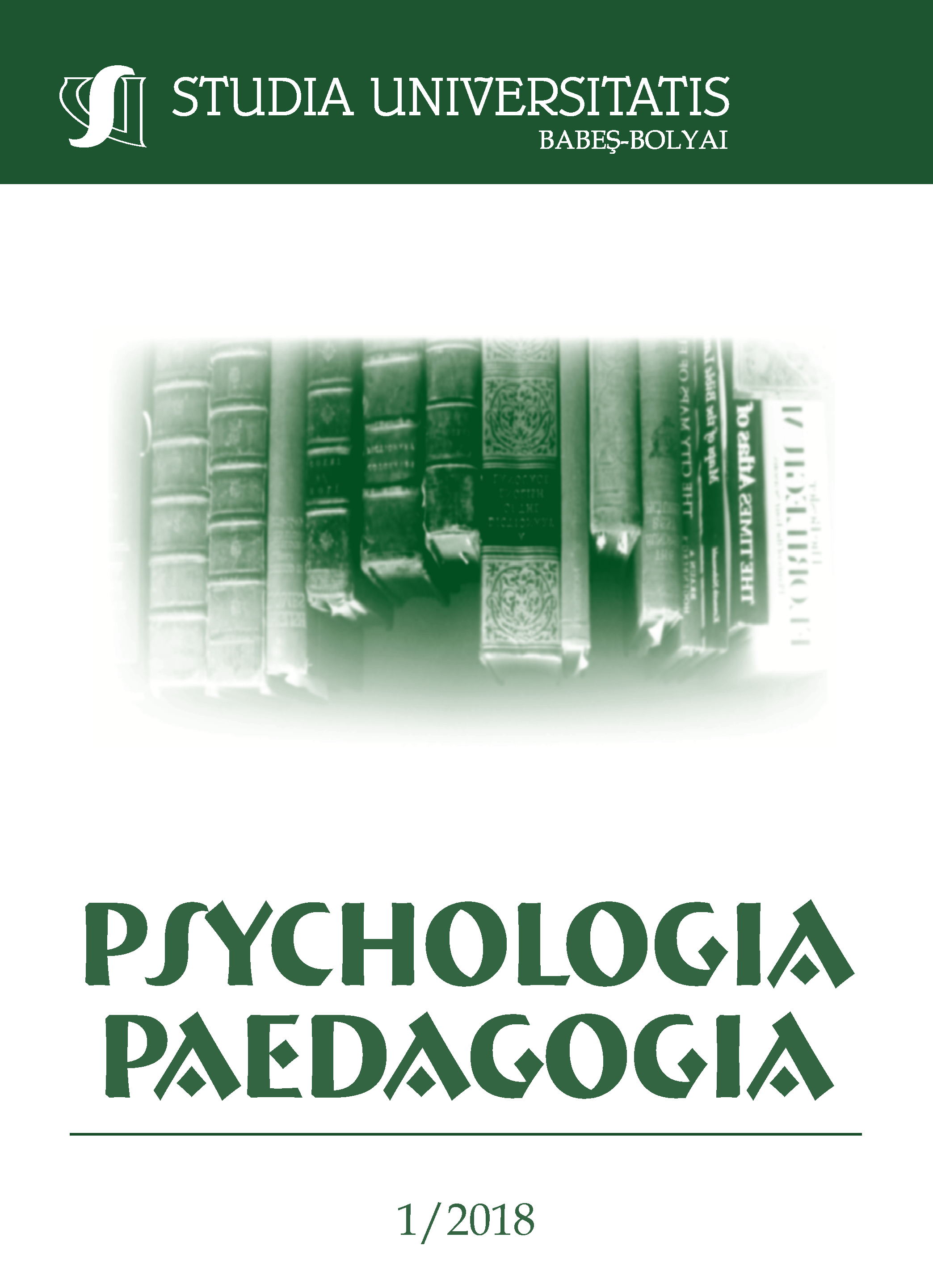EDUCATION IN THE SPIRIT OF ECUMENICAL VALUES
DOI:
https://doi.org/10.24193/subbpsyped.2018.1.04Keywords:
ecumenical education, religious education, ecumenical principles and values.Abstract
The education of the 21st century should respond to societal changes, as well as to challenges occurring in line with the un-precedented development of technology, mass migration and globalisation. The principles underlying the current educational policies support the need to promote an axiological education, in harmony with human and social values which should lead to a good co-existence, acceptance and respect between different civilisations and cultures. In this respect, the ecumenical education promotes pro-social attitudes, openness to people, peace and social justice. Near the family, the main agents shaping the children moral character are school and church. The religious education in the Romanian schools aims at the holistic development of the individuals, their spirituality and morality, but also at forming a harmonious personality of a person capable to cohabit, communicate and positively relate to his or her peers. This paper focuses on revealing the formative aspects of the religious education provided to secondary school students, the way they relate to the values and principles of ecumenical education and how specific elements to ecumenical education are applied in particular contexts.
Bildung im Geist der ökumenischen Werte. Die Bildung des 21. Jahrhunderts sollte sowohl auf gesellschaftliche Veränderungen, als auch auf Herausforderungen reagieren, die zusammen mit der ohnegleichen Entwicklung von Technologie, Massenmigration und Globalisierung stattfinden. Die Prinzipien, die der gegenwärtigen Bildungspolitik zugrunde liegen, unterstützen die Notwendigkeit, eine axiologische Erziehung im Einklang mit menschlichen und sozialen Werten zu fördern, die zu einer guten Koexistenz, Akzeptanz und Respekt zwischen verschiedenen Zivilisationen und Kulturen führen sollte. In dieser Hinsicht fördert die ökumenische Erziehung prosoziale Einstellungen, Offenheit für Menschen, Frieden und soziale Gerechtigkeit. In der Nähe der Familie sind die Hauptagenten, Schule und Kirche, die den moralischen Charakter der Kinder formen. Die religiöse Erziehung in den rumänischen Schulen zielt auf die ganzheitliche Entwicklung der Individuen, ihrer Spiritualität und Moral ab, aber auch auf die Bildung einer harmonischen Persönlichkeit einer Person, die in der Lage ist, mit Gleichaltrigen zusammenzuleben, zu kommunizieren und sich positiv zu verhalten. Dieser Beitrag konzentriert sich darauf, die formativen Aspekte des Religionsunterrichts für Sekundarschüler aufzuzeigen, wie sie mit den Werten und Prinzipien der ökumenischen Bildung in Beziehung stehen und wie spezifische Elemente der ökumenischen Bildung in bestimmten Kontexten angewandt werden.
Schlüsselwörter: ökumenische Erziehung, religiöse Erziehung, ökumenische Prinzipien und Werte.
References
Cucoș, C. (2009). Educația religioasă. Repere teoretice și metodice. Iași: Polirom.
Kunuba, AC. (2015). The Relevance of Philosophical and Ecumenical Education in the Nigerian Educational System. The International Journal of Humanities and Social Studies, 3(6), 240-243.
Misra, S. (2012). Implications of Globalization on Education. Romanian Journal for Multidimensional Education, 4(2), 69-82.
Niculescu, RM., & Norel, M. (2013). Religious Education an Important Dimension of Human’s Education. Procedia Social and Behavioral Sci-ences, 93, 338-342.
Santi, C., Santi, EA. (2014). Elemente de educație religioasă în grădiniță. Teorie și aplicații practice. București: Basilica.
*** - Message of His Beatitude Daniel, Patriarch of the Romanian Orthodox Church, expressed at the national meeting of the “Parents for Religion Class” Association. Available at: http://basilica.ro/cooperare-benefica-intre-familie-scoala-si-biserica-in-domeniul-educatiei/.
Downloads
Published
How to Cite
Issue
Section
License
Copyright (c) 2018 Studia Universitatis Babeș-Bolyai Psychologia-Paedagogia

This work is licensed under a Creative Commons Attribution-NonCommercial-NoDerivatives 4.0 International License.





